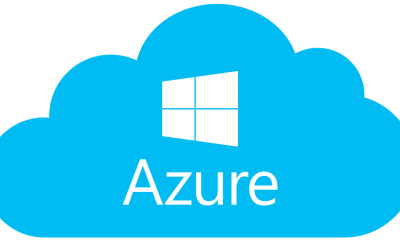Microsoft Touts Speedy Deployments With Azure Container Instances

Cloud battle ratchets up as Microsoft offers new service for speedy deployment of Azure containers
Microsoft has launched a new Azure service to make it easier and faster to deploy containers, as Redmond’s battle with its cloud rivals intensifies.
According to the software giant, Azure Container Instances (ACI) is the new Azure service which aims to speed up the rollout of containers, without the need for any Virtual Machine infrastructure to manage.
In addition, Microsoft has also announced that it has joined the open source Cloud Native Computing Foundation (CNCF) as a Platinum member.
 Tailored Fit
Tailored Fit
Microsoft says that is new ACIs are the fastest and easiest way to run a container in the cloud, and indeed are the very first service of its kind in the cloud.
“Containers have fundamentally changed the way developers develop their applications, the way applications are deployed, and the way system administrators manage their environments,” blogged Corey Sanders, director of compute at Azure.
“An Azure Container Instance is a single container that starts in seconds and is billed by the second,” he added. “ACI offer highly versatile sizing, allowing you to select the exact amount of memory separate from the exact count of vCPUs, so your application perfectly fits on the infrastructure.
“With ACI, containers are a first-class object of the Azure platform, offering Role-Based Access Control (RBAC) on the instance and billing tags to track usage at the individual container level,” wrote Sanders. “As the service directly exposes containers, there is no VM management you need to think about or higher-level cluster orchestration concepts to learn. It is simply your code, in a container, running in the cloud.”
According to Microsoft, this make it ideally suited for their customers “beginning their container journey.”
Container Instances are available now in public preview for Linux containers, and Windows container support will be added in the coming weeks.
“We continue to increase our investment and community engagement with containers and with Kubernetes, including Helm, our recent release of Draft, and the open-source ACI connector released today,” wrote Sanders.
Open Ecosystem
Meanwhile Microsoft also revealed that it has now joined the Cloud Native Computing Foundation (CNCF) as a Platinum member to increase its investment (and code) in the area of containers.
Google of course had handed over control of its open source container orchestration system, Kubernetes, to the CNCF back in July 2015.
CNCF is a collaborative project of the Linux Foundation which hosts and provides governance for a wide range of projects including Kubernetes, Prometheus, OpenTracing,Fluentd, Linkerd, containerd, Helm, gRPC etc.
Microsoft under CEO Satya Nadella is making the software giant a more open company. He signed up Microsoft as a platinum partner of the Linux Foundation in November 2016.
Nadella’s move was in stark contrast to the era of Steve Ballmer who was especially hostile to Linux, describing the platform as a “cancer.” That said, his attitude towards open source changed in later years.
Quiz: What do you know about Linux?